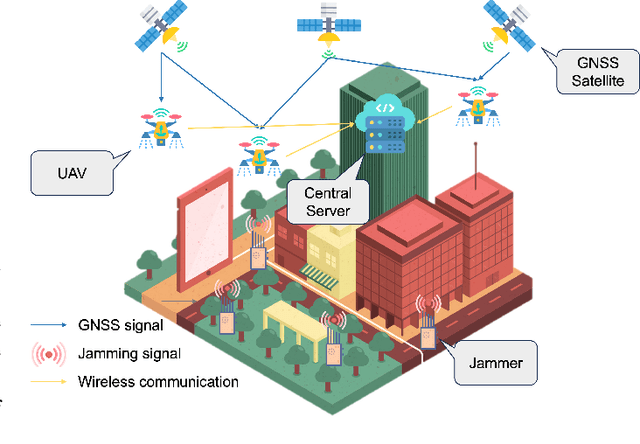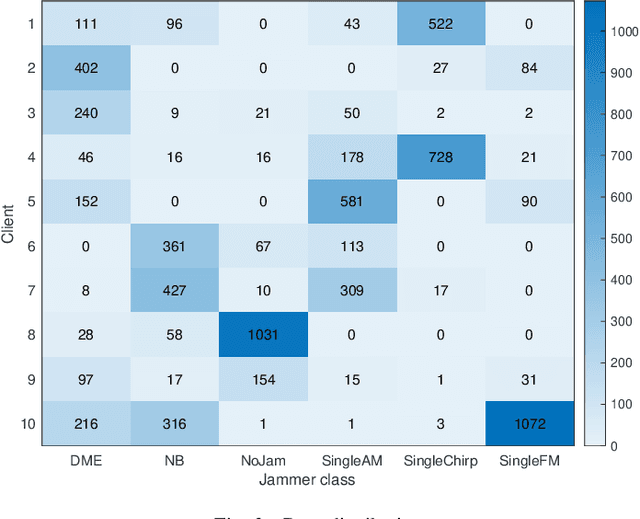GNSS Interference Classification Using Federated Reservoir Computing
Paper and Code
Aug 23, 2024



The expanding use of Unmanned Aerial Vehicles (UAVs) in vital areas like traffic management, surveillance, and environmental monitoring highlights the need for robust communication and navigation systems. Particularly vulnerable are Global Navigation Satellite Systems (GNSS), which face a spectrum of interference and jamming threats that can significantly undermine their performance. While traditional deep learning approaches are adept at mitigating these issues, they often fall short for UAV applications due to significant computational demands and the complexities of managing large, centralized datasets. In response, this paper introduces Federated Reservoir Computing (FedRC) as a potent and efficient solution tailored to enhance interference classification in GNSS systems used by UAVs. Our experimental results demonstrate that FedRC not only achieves faster convergence but also sustains lower loss levels than traditional models, highlighting its exceptional adaptability and operational efficiency.
 Add to Chrome
Add to Chrome Add to Firefox
Add to Firefox Add to Edge
Add to Edge